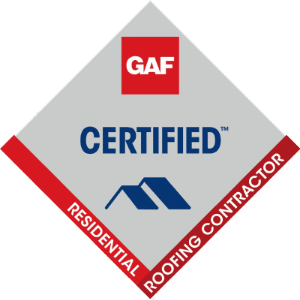Understanding the Importance of Commercial Roofing Inspections
Commercial roofing inspections serve as the foundation of effective property management and maintenance strategies. When we conduct comprehensive evaluations of commercial roofing systems, we identify potential issues before they escalate into costly repairs or complete system failures. Regular inspections protect your investment and ensure continuous operations for your business, preventing unexpected disruptions that can impact productivity and revenue.
Our inspection process at Black Hills Roofing combines decades of experience with cutting-edge technology to deliver thorough assessments. We understand that commercial properties face unique challenges, from heavy foot traffic and HVAC equipment loads to extreme weather conditions that test roofing materials daily. By scheduling routine inspections, property owners and facility managers gain valuable insights into their roof’s condition, enabling data-driven decisions about maintenance, repairs, and eventual replacement planning.
Comprehensive Inspection Methodology
Our systematic approach to commercial roofing inspections begins with a detailed visual examination of all accessible roofing components. We inspect membrane integrity, checking for punctures, tears, or areas of deterioration that could compromise waterproofing capabilities. Flashings around penetrations, parapet walls, and equipment curbs receive special attention, as these transition points represent common failure zones in commercial roofing systems.
We evaluate drainage systems extensively, including internal drains, scuppers, and gutters, ensuring proper water flow and identifying any blockages that could lead to ponding water. Our inspectors document seam integrity in single-ply systems, examining heat welds or adhesive bonds for signs of separation or degradation.
Core samples and moisture surveys complement visual inspections when conditions warrant deeper investigation. We utilize infrared thermography to detect hidden moisture within insulation layers, providing non-destructive testing that reveals problems invisible to the naked eye. These advanced diagnostic tools help us create comprehensive condition reports that guide maintenance strategies and budget planning.
Key Areas of Focus During Inspections
- Roof Membrane Condition: We examine the entire surface for wear patterns, UV degradation, and physical damage from foot traffic or debris impact
- Penetration Seals: Every pipe boot, equipment support, and roof penetration receives careful scrutiny to ensure watertight integrity
- Edge Metal and Coping: We inspect perimeter details for secure attachment and proper water-shedding capabilities
- Expansion Joints: These critical components accommodate building movement and require regular evaluation for flexibility and seal integrity
- Rooftop Equipment: We assess HVAC units, exhaust fans, and other equipment for proper support and weatherproofing
Industry Standards and Compliance Requirements
Commercial roofing inspections must align with various industry standards and local building codes. We stay current with requirements from organizations like the National Roofing Contractors Association and ensure our inspection protocols meet or exceed these benchmarks. Insurance carriers increasingly require documented inspection programs to maintain coverage, and we provide detailed reports that satisfy these requirements while helping property owners maintain compliance.
Energy efficiency regulations continue to evolve, making thermal performance evaluation an essential component of modern inspections. We assess insulation conditions and identify opportunities for energy improvements that can reduce operational costs while meeting sustainability goals. Our CertainTeed/GAF Certified and Malarky certified status ensures we understand manufacturer requirements for warranty compliance, helping clients protect their coverage through proper maintenance documentation.
Proactive Maintenance Through Regular Inspections
Establishing an inspection schedule based on roof age, type, and environmental factors maximizes system longevity while minimizing lifecycle costs. We recommend semi-annual inspections for most commercial properties, with additional assessments following severe weather events. This proactive approach allows us to address minor issues before they require emergency repairs, extending service life and avoiding business disruptions.
Our detailed inspection reports include photographic documentation, condition ratings for each component, and prioritized recommendations for maintenance actions. We provide cost estimates for recommended repairs, enabling informed budget planning and preventing unexpected expenses. By tracking inspection data over time, we help clients understand deterioration rates and plan for eventual replacement with minimal operational impact.
Having been in business since 1957, we understand the unique challenges facing commercial property owners in Rapid City, Black Hawk, Box Elder, Rapid Valley, Hill City, Summerset, Custer, Hot Springs, Deadwood & Spearfish, SD. Our commitment to supporting local charities and events reflects our investment in community success. We maintain long-term relationships with clients because we deliver honest assessments and practical solutions that protect their properties and budgets. While storm chasers come and go, we remain your trusted local partner for all commercial roofing needs throughout Black Hills Area.
Frequently Asked Questions
Q1: How often should I schedule a commercial roof inspection?
A: We recommend scheduling a professional inspection at least twice a year—typically in the spring and fall—as well as after any major storms. Regular inspections help catch small issues before they become costly repairs and extend the life of your roofing system.
Q2: What’s included in a commercial roof inspection?
A: Our inspections cover a full evaluation of your roofing system, including the membrane, flashing, drainage, seams, penetrations, and structural components. We look for signs of wear, damage, or potential leaks and provide a detailed report with recommended next steps.
Q3: Do I need an inspection if my roof isn’t leaking?
A: Yes. Even if your roof appears to be in good condition, hidden issues like moisture buildup, membrane deterioration, or loose flashing can lead to serious problems down the line. Preventative inspections are key to protecting your building and avoiding unexpected expenses.










